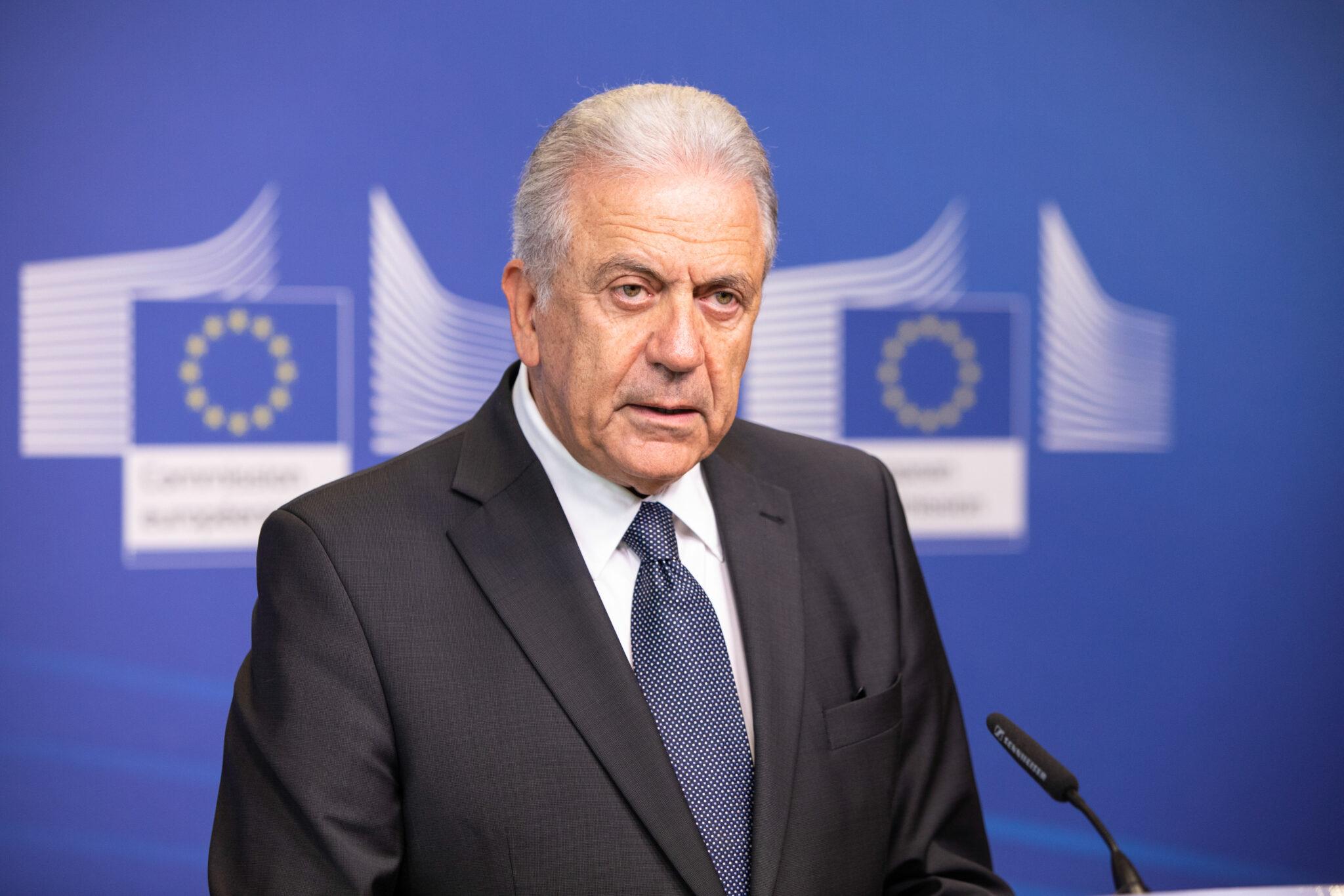Ethics control of the EU Commission failed in the case of the NGO that allegedly bribed EP Vice-President Eva Kaili
The non-governmental organisation (NGO) “Fight Impunity”, through which ex-European Parliament Vice-President Eva Kaili is alleged to have received 600,000 euros in bribes from Qatar, was already investigated by the EU Commission’s ethics body in 2020. At the time, ex-EU Commissioner Dimitris Avramopoulos (Greek Christian Democrat) wanted to lobby for this NGO in his cooling-off period. The ethics committee noticed that the NGO was not in the EU lobby register, i.e. it did not disclose where it got its money from. But they relied on the word of the ex-Commissioner and NGO boss Panzeri as ex-MEP that the NGO wanted to register soon. They also relied on the promise that the ex-Commissioner would not abuse his contacts in the Commission and his internal knowledge from the Commission. On this basis, the EU Commission did not make use of the possibility to prohibit him from subsequent employment. Apparently, the Commission also did not notice that the NGO had never registered until today, i.e. did not keep its promise. Politico reports today that Dimitris Avramopoulos received 60,000 euros for his work for “Fight Impunity”. Neither the lack of registration nor the breach of the promise to make up for it stopped numerous former and current EU politicians from taking leading positions in the NGO.
EU Commission President Ursula von der Leyen had promised an independent ethics body for better ethics control. Since the European Parliament adopted my proposal for this in September 2021, we have been waiting for the Commission’s announced proposal.
Daniel Freund, European Parliament rapporteur on “Improving transparency and integrity in the EU institutions through the establishment of an independent EU ethics body”, comments:
“The EU Commission’s own ethics body had the chance to expose the suspected corruption network around Panzeri and Kaili at an early stage and negligently let it slip away. The case must wake up Commission President von der Leyen. Von der Leyen must present a draft for an EU ethics body as soon as possible to repair the weaknesses of the current system.
The EU Commission’s ethics control failed threefold: instead of controlling finances of the organisation based on registration and official documents, the Commission relied on statements and promises of the ex-commissioner. Instead of checking the promise of registration, it trusted blindly. And the Commission relied on the promise that 60,000 euros for ‘networking’ were not paid for the ex-Commissioner’s network in the Commission.
The case clearly shows there is a need for an EU ethics body with the necessary independence and the right to conduct its own investigations.”
—
Opinion of the EU-Commission’s Ethical Committee on the request of Dimitris Avramopoulos to take up a paid Board position with the NGO “Fight Impunity”, of 10 December 2020:
https://commission.europa.eu/system/files/2021-01/avis_cei_texte_10122020_en.pdf
List of Board Members on the page of Fight Impunity”: https://www.fightimpunity.com/who-we-are
My EP decision for an EU Ethics Body with investigatory powers, of 16 September 2021: https://www.europarl.europa.eu/doceo/document/TA-9-2021-0396_EN.html
Our comment on the EP decision for an EU Ethics Body: https://danielfreund.eu/european-parliament-supports-eu-ethics-body/?lang=en
Our comment on the EP’s first conclusions from the corruption scandal around Eva Kaili: https://danielfreund.eu/qatargate-european-parliament-wants-to-curb-corruption-with-stricter-lobbying-rules/?lang=en
THE MOST IMPORTANT paragraphs from the opinion of the EU-Commission’s Ethical Committee on the request of Dimitris Avramopoulos to take up a paid Board position with the NGO “Fight Impunity”
- According to former Commissioner Avramopoulos, the sources of funding of the association are mostly donations. As of today, the most important donor is the Sekunjalo Development Foundation.
- The Association Against Impunity and for Transitional Justice is not registered in the Joint Transparency Register of the European Parliament and the Commission. However, Mr Avramopoulos provided additional information to the Commission and declared that AITJ plans to register ‘as soon as they will resume working and having physical presence in Brussels post Covid-19’.
- The Committee has taken note of Mr Avramopoulos general assurance that he was aware of his obligations under the treaties and the Code of Conduct and would respect them at all times in this position as set out above.
- With regard to the envisaged post-mandate activity, the Committee does not see any legal or other impediments to accepting the functions as long as former Commissioner Avramopoulos respects the obligations set out in the Treaties and the Code of Conduct.
- The Committee highlights in this regard in particular Article 11(4) of the Code of Conduct, i.e. the obligation not to lobby Members or staff of the Commission on behalf of AITJ on matters for which he was responsible within his portfolio for a period of two years after ceasing to hold office. This includes lobbying in view of obtaining funds from EU programmes falling within his previous portfolio responsibilities. However, the prohibition to lobby (i.e. the promotion of certain interests with the objective to influence the formulation of implementation of policy or legislation, or the decision-making process of the Commission directly or indirectly) does not affect a possible participation in public events or general exchanges of, and on, publicly available information with Members of the Commission or Commission staff.
The EU Commission's own ethics body had the chance to expose the suspected corruption network around Panzeri and Kaili at an early stage and negligently let it slip away. The case must wake up Commission President von der Leyen. Von der Leyen must present a draft for an EU ethics body as soon as possible to repair the weaknesses of the current system.


